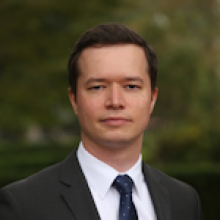Monetary policy decisions are endogenous to macroeconomic conditions, which makes causal inference difficult. To solve this problem, monetary economics has resorted to the construction of high-frequency monetary shocks. The researcher focuses on the change in financial asset prices around the announcement of monetary policy decisions. If financial markets correctly incorporate information, they should anticipate rate changes that are explained by macroeconomic fundamentals.
I want to collect data that would allow me to construct high-frequency monetary shocks for the periods that precede WWII. From the 1890s onward, City traders would bet on whether the interest rate of the Bank of England (BoE) would change. Financial newspapers would often report the odds associated to such betting. From the odds, I could construct monetary shocks.
Armed with those shocks, I could investigate two important topics. The first one is the relative decline of Britain in the international monetary system: before WWI, London was the financial center of the world, a status which it lost to New York during the interwar period. Is this manifest in the effect Bank Rate had on domestic and foreign financial markets? The second one would be a case study in hawkish monetary policy and its international spillovers: the problems of the inter-war gold standard and their contribution to the Great Depression. Gold hoarding by France and the United States has been blamed for worsening, or even creating, the Great Depression. Thanks to these shocks, I could estimate the effect of monetary policy on gold flows, prices, and unemployment. I could then construct counter-factual scenarios for the 1930s under looser monetary policy. Can monetary forces explain the Great Depression?

